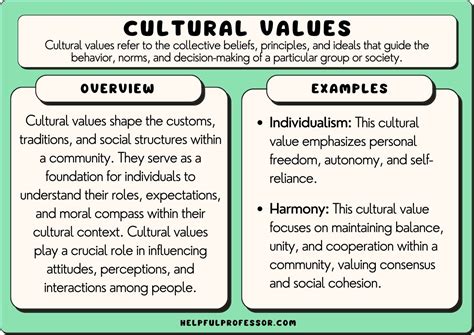Throughout history, women have played a crucial role in creating nurturing and harmonious environments within their homes. While societal expectations have evolved over time, the desire to find contentment in traditional roles remains a significant aspiration for many. Today, we explore the unique perspective of those who find joy and fulfillment in adopting the cherished position of a homemaker.
Discovering the Path Less Traveled
For those seeking an alternative to the fast-paced and often stressful demands of modern life, the decision to embrace a homemaking lifestyle can be a transformational journey. Moving away from the traditionally defined notions of success and achievement, these individuals valiantly choose to focus on the invaluable work done within the confines of their own homes. By embracing the roles of caregiver, domestic organizer, and keeper of the hearth, they uncover a sense of purpose and fulfillment that is unparalleled in other pursuits.
Appreciating the Beauty in Simplicity
In a world that constantly bombards us with stimuli and distractions, the peaceful sanctity of a well-kept home becomes a sanctuary of solace and tranquility. Through their commitment to nurturing their surroundings, individuals pursuing a homemaking lifestyle find solace in the rhythm of daily routines and the satisfaction of turning a house into a warm and loving home. Each task, whether it be cooking a delicious meal or arranging a bouquet of fresh flowers, becomes a creative expression of love and dedication.
Cultivating a Sense of Purpose and Connection
A homemaking lifestyle provides individuals with a unique opportunity to deeply connect with their families as well as their communities. By dedicating their time and energy to the well-being and happiness of their loved ones, these homemakers foster a sense of unity and belonging that transcends superficial interactions. The role of homemaker encompasses not only the physical aspects of managing a household but also the emotional labor required to build strong relationships and ensure the happiness of all those under their care.
The Allure of Traditional Gender Roles

In contemporary society, there exists a certain fascination and attraction towards the conventional expectations and divisions of gender roles. These age-old societal norms, deeply rooted in our history, continue to captivate individuals with their distinct allure and appeal. The idea of adhering to traditional gender roles, with its manifold responsibilities and distinct roles for men and women, offers a sense of stability, purpose, and fulfillment.
For many, the notion of embracing traditional gender roles evokes a deep sense of nostalgia and reverence for the past, where there was a clear division of labor and duties within the household. The roles of men and women were defined and celebrated, providing a sense of order and structure. Such an arrangement offers individuals a sense of belonging, as they find comfort in fulfilling their prescribed roles and responsibilities, thus contributing to the overall harmony of the family unit.
Moreover, the appeal of traditional gender roles lies in the complementary nature of these roles. Traditional gender roles recognize and celebrate the unique strengths and qualities that each gender brings to the table. Men are often associated with traits such as strength, leadership, and protection, while women are valued for their nurturing qualities, emotional intelligence, and ability to create a warm and inviting home environment. In a world that seeks to blur gender distinctions, the appeal of traditional gender roles lies in acknowledging and embracing these differences, fostering harmony and balance in relationships and households.
Embracing traditional gender roles also offers a sense of purpose and fulfillment. The clear divisions of labor allow individuals to dedicate themselves to specific tasks and roles, honing their skills and expertise. This specialization creates a sense of pride and accomplishment as individuals excel in their respective domains, providing a strong foundation for the overall functioning of the household. The fulfillment derived from playing a critical role in the successful functioning of a family, as well as the satisfaction of contributing to the well-being of loved ones, cannot be underestimated.
In conclusion, the appeal of traditional gender roles lies in the stability, order, and meaning they provide to individuals. While acknowledging the complexities of gender dynamics and the importance of choices, the allure of traditional gender roles should not be overlooked or dismissed. It is a personal preference that allows individuals to find joy, purpose, and fulfillment in embracing and upholding the age-old societal norms that have shaped our history.
Understanding the Desire to Embrace Traditional Homemaker Roles
Exploring the inclination towards traditional domestic duties and the fulfillment it brings can shed light on individuals who are drawn to the role of a homemaker but aspire for more significance behind it.
When individuals express a desire to adopt the traditional homemaker roles, they are not merely yearning for a life marked by mundane household chores and repetitive tasks. Rather, they actively seek a sense of purpose and joy in fulfilling the responsibilities associated with maintaining a home and caring for their loved ones.
For some, the longing to embrace traditional homemaker roles stems from an innate drive to create a nurturing and harmonious environment for their family. They find fulfillment in the act of cultivating a warm and inviting atmosphere, where bonds are strengthened, and cherished memories are woven. This desire transcends the notion of being tied down by societal expectations and instead finds roots in the genuine joy derived from creating a sanctuary for loved ones to thrive.
Furthermore, the appeal of traditional domestic duties lies in the ability to provide unwavering support and stability to one's partner or family. By acknowledging the significance of these roles, individuals understand the immense impact they can have in fostering a loving and secure foundation for their loved ones to succeed in their pursuits. The rewards derived from being an unwavering source of support and encouragement often outweigh any professional achievements one might find outside of the home.
It is important to recognize that the desire to embrace traditional homemaker roles is not indicative of a lack of ambition or a rejection of modern progress. On the contrary, individuals who choose this path often possess an unwavering determination to contribute to society in a meaningful way. They recognize the immense value in building strong families and communities, understanding that a stable and nurturing home environment is the cornerstone for a thriving society.
In conclusion, understanding the desire to embrace traditional homemaker roles requires recognizing the inherent fulfillment and purpose that can be derived from nurturing loved ones and creating a loving and secure home environment. It is not about conforming to societal expectations, but rather about finding joy and significance in the roles of a homemaker that extend beyond the confines of traditional stereotypes.
The Pleasure of Cultivating a Nourishing Home Atmosphere

Creating a nurturing home environment is an art that brings deep satisfaction and fulfillment. When one devotes themselves to enhancing the ambiance of their residence, they have the ability to foster an atmosphere that is conducive to growth, peace, and happiness. This pursuit involves the deliberate cultivation of various elements, such as warmth, serenity, and harmony, all of which contribute to the overall well-being of every individual residing within the household.
Nurturing a home environment means establishing a space where both physical and emotional needs are met with care and attention. The atmosphere must exude a sense of safety and security, providing comfort and solace to all who enter. The aesthetics of the home, from the color palette to the arrangement of furniture, play a crucial role in evoking feelings of tranquility and serenity. A nurturing home is a place where family members can find refuge from the outside world, where they can rejuvenate their spirits and seek solace from the challenges of daily life.
Another essential aspect of cultivating a nurturing environment is embracing the power of togetherness and connection. A home is not merely a structure; it is a sanctuary where relationships are forged and nurtured. Creating opportunities for shared experiences, such as regular family meals, game nights, or heartfelt conversations, fosters a sense of belonging and strengthens the bonds within the household. By prioritizing these moments of connection, a nurturing home environment is sustained, allowing everyone to flourish and thrive.
In conclusion, the joy of creating a nurturing home environment lies in the ability to build a haven that promotes personal growth, fosters emotional well-being, and cultivates strong relationships. It is a deliberate and intentional journey, where attention to detail and the power of togetherness intertwine to create a space that is truly fulfilling. Embracing the role of a homemaker provides the opportunity to shape the lives of loved ones and make a lasting impact on their overall happiness and contentment.
Exploring the Sense of Achievement in Home Management
Within the realm of domestic responsibilities, there lies a deep and profound fulfillment that comes with successfully managing a household. This article delves into the intricate dynamics of fulfilling domestic duties, highlighting the sense of accomplishment and purpose that accompanies these often underestimated roles.
Creating a Nurturing Environment: The art of homemaking encompasses more than just cleaning and cooking; it involves fostering an atmosphere of warmth and comfort for oneself and loved ones. Engaging in activities such as creating cozy spaces, organizing clutter-free living areas, and preparing wholesome meals all contribute to cultivating a nurturing environment that allows individuals to thrive.
Mastering the Art of Balance: Juggling multiple responsibilities within a household requires skillful balancing. Successfully managing tasks such as budgeting, meal planning, and coordinating schedules requires adaptability, organization, and problem-solving abilities. As individuals embrace the challenge, they find a deep sense of fulfillment in enabling a smoothly running household.
Empowering Personal Growth: Domestic duties provide ample opportunities for personal growth and development. From learning new culinary skills to honing time-management techniques, individuals continuously expand their knowledge and capabilities. These experiences not only contribute to self-improvement but also allow individuals to become well-rounded and confident individuals.
Fostering Strong Family Bonds: The fulfillment derived from domestic duties extends beyond personal growth and accomplishment. By taking up the roles of a homemaking partner or parent, individuals have the privilege of fostering strong family bonds. Through love, care, and dedication, they create an environment where relationships thrive and meaningful connections are formed.
In conclusion, the fulfillment of domestic duties, though often overlooked, can bring immense joy and contentment. By recognizing and embracing the achievements derived from managing a household, individuals can find a deep sense of purpose and satisfaction in their roles as homemakers.
Breaking away from Societal Expectations

In this section, we will explore the notion of liberation from societal norms and expectations, as individuals seek to define themselves beyond the confines of traditional gender roles. We will delve into the power of choice, self-expression, and redefining success in a world that often places undue pressure on conforming to predetermined roles.
By challenging societal expectations, we can break free from the rigid confines that limit our personal growth and fulfillment. Embracing individuality and pursuing passions outside of traditional roles allow us to discover our true selves and lead a life that aligns with our values and aspirations.
The Power of Choice: Liberation begins with acknowledging the power of choice. Recognizing that our dreams and aspirations should not be dictated by societal expectations empowers us to pursue paths that may deviate from traditional norms. Each person should have the freedom to chart their own course and create a life that brings them joy and fulfillment.
Self-Expression: Breaking free from societal expectations involves embracing self-expression. Society often expects individuals to conform to specific gender roles and behaviours. However, finding fulfillment and happiness requires embracing our unique identities and expressing ourselves authentically, regardless of societal conventions.
Redefining Success: Society often equates success with traditional accomplishments, such as career advancements or financial prosperity. However, breaking away from societal expectations allows us to redefine success on our terms. It enables us to prioritize personal growth, quality relationships, and overall well-being, reflecting our own values and desires.
In conclusion, breaking free from societal expectations is a crucial step in leading a fulfilling and joyful life. It requires embracing the power of choice, expressing our true selves, and redefining success on our own terms. By doing so, we can create a world where individuals are empowered to pursue their dreams and aspirations without fear of judgment or conformity.
Reclaiming Housewife Stereotypes: Empowering Women through Personal Fulfillment
As society continues to redefine gender roles and expectations, it is crucial to examine the potential empowerment that can come from reclaiming and embracing housewife stereotypes. By challenging societal norms and demonstrating the personal fulfillment that can be derived from these roles, women have the opportunity to bring a new perspective to traditional gender roles.
Redefining the Housewife Stereotype: Rather than viewing the housewife as a symbol of submission or oppression, it is important to recognize the power and agency that can be found within this role. Embracing the role of a housewife allows women to exercise their own strengths, talents, and creative abilities within the domestic sphere. By understanding the housewife stereotype as a choice and an avenue for self-expression, women can begin to feel empowered in their decision to pursue this path.
Challenging Gender Expectations: By actively pursuing a housewife role, women challenge the societal notion that success is exclusively tied to external achievements or career aspirations. Embracing traditional roles with confidence allows women to redefine success on their own terms, focusing on personal growth, family values, and building a nurturing home environment. Through this, women can challenge and reshape societal expectations surrounding gender roles.
Cultivating Personal Fulfillment: Being a housewife provides women with the opportunity to cultivate personal fulfillment through creating a harmonious and happy home environment. By prioritizing self-care, organizing household tasks efficiently, and fostering meaningful relationships within the family, women can find joy and purpose in their role as a housewife. Recognizing the impact that their contributions have on their loved ones and the strong foundation they are building instills a sense of pride and fulfillment.
Balancing Responsibilities and Independence: While embracing the housewife role, it is important for women to maintain a sense of independence and balance. This includes fostering personal interests and pursuing hobbies outside of the domestic sphere, as well as actively engaging in decision-making processes within the household. By maintaining a sense of autonomy and agency, women can successfully navigate the aspects of traditional roles that align with their individual values and goals.
By reclaiming and reframing housewife stereotypes, women have the potential to find empowerment, personal fulfillment, and joy within this traditionally undervalued role. Through challenging societal expectations, embracing personal agency, and nurturing their own well-being, women can redefine and reshape traditional gender roles in a way that is meaningful and beneficial not only for themselves but for society as a whole.
Embracing Traditional Values in the Modern Era

In a rapidly changing world, it can be challenging to find stability and an anchor to hold onto amidst the uncertainties of societal progress. The notion of embracing traditional values allows individuals to connect with timeless principles that have withstood the test of time. These values offer a sense of grounding and purpose, providing a solid foundation in navigating the complexities of the modern era.
Preserving the essence of traditional values
While the world around us evolves at an unprecedented pace, it is essential to acknowledge the significance of traditional values and their ability to foster a sense of identity and belonging. Embracing these values allows individuals to honor their cultural heritage, maintain strong family ties, and uphold ethical principles that have proven their worth over generations. Moreover, preserving traditional values can contribute to the preservation of cultural diversity and create a mosaic of different perspectives in our ever-globalizing world.
Adapting traditional values to the modern context
Although traditional values may evoke a sense of nostalgia for days gone by, it is crucial to recognize that the modern world demands adaptation and flexibility. While embracing traditional values, it is necessary to acknowledge the evolving societal dynamics and find creative ways to incorporate these values into our contemporary lives. This might involve finding new approaches to traditional roles, redefining gender stereotypes, and embracing progressive ideas while holding on to the core principles that define traditional values.
Creating a balance between tradition and progress
In an era where progress often takes precedence, it is important to strike a balance between tradition and modernity. Embracing traditional values does not mean rejecting progress or innovation; instead, it calls for a thoughtful integration of the old and the new. By blending traditional values with modern perspectives, individuals can cultivate a harmonious coexistence, leveraging the wisdom of the past to inform decisions and actions in the present.
The enduring relevance of traditional values
As the world continues to change, traditional values remain steadfast, reminding us of our roots and offering guidance in times of uncertainty. Embracing these values allows individuals to tap into a rich tapestry of wisdom, fostering a sense of stability and purpose amidst the ebb and flow of the modern world. By appreciating the enduring relevance of traditional values, we can find solace, strength, and a sense of belonging in an ever-changing landscape.
Finding Happiness in Embracing Traditional Roles amidst Changing Societal Norms
In a time of evolving societal expectations and shifting gender dynamics, many individuals have discovered a profound sense of fulfillment by embracing traditional roles. By finding happiness in the pursuit of age-old responsibilities, individuals have managed to navigate changing norms with grace and confidence. This article explores the reasons behind the joy found in upholding traditional roles, highlighting the inherent value and satisfaction that can be derived from such choices.
1. Cultivating a sense of purpose: Embracing traditional roles allows individuals to establish a strong sense of purpose in their lives. By prioritizing the well-being and harmony of the household, one can find deep fulfillment in the meaningful contributions made towards the betterment of their family. Whether it involves nurturing children, maintaining a warm and inviting home, or supporting a partner in their endeavors, the pursuit of traditional roles provides a clear purpose and direction.
2. Celebrating timeless values: Traditional roles offer the opportunity to preserve and celebrate timeless values that have been cherished for generations. By embodying the qualities of love, compassion, and sacrifice, individuals can maintain the rich cultural fabric that has woven communities together throughout history. Embracing and upholding these values can bring tremendous satisfaction and a sense of fulfillment that transcends societal trends and fads.
3. Creating a sense of stability: Amidst rapidly changing societal norms, traditional roles provide a sense of stability and constancy. By assuming responsibilities that have withstood the test of time, individuals can anchor themselves in a familiar and secure environment. The feeling of knowing one's role and its impact on the family and community can greatly contribute to overall happiness and contentment.
4. Fostering strong familial bonds: Embracing traditional roles often leads to the cultivation of strong familial relationships. By dedicating time and effort towards nurturing family connections, individuals can create a supportive and loving environment for their loved ones. This sense of deep connection and togetherness can be immensely rewarding and bring profound joy.
5. Finding fulfillment in personal growth: Embracing traditional roles does not mean foregoing personal growth and self-fulfillment. On the contrary, many individuals find immense satisfaction and growth by excelling in their traditional roles. Whether it involves mastering new skills, honing organizational abilities, or developing effective communication techniques, the pursuit of traditional roles can lead to personal development and a sense of accomplishment.
- Conclusion:
Amidst the changing landscape of societal expectations, finding happiness in embracing traditional roles is a testament to the inherent value and satisfaction derived from such choices. By cultivating a sense of purpose, celebrating timeless values, creating stability, fostering strong family bonds, and finding personal fulfillment, individuals who embrace traditional roles navigate changing norms with grace, contentment, and a deep sense of joy.
Empowering Choice: Embracing the Decision to be a Full-Time Homemaker

The decision to embrace a life as a full-time homemaker is empowering and signifies a deliberate and conscious choice to prioritize the home and family. This choice allows individuals to create a nurturing and fulfilling environment for themselves and their loved ones.
Opting to be a full-time homemaker is not merely about adhering to traditional gender roles, but rather about embracing the opportunity to cultivate a thriving household ecosystem. It entails taking on various responsibilities, such as managing household tasks, raising children, and providing emotional support. It allows individuals to consciously shape their own lives and find fulfillment in creating a loving and supportive environment.
Being a full-time homemaker enables one to focus on the values and priorities that matter most to them. It offers the freedom to establish routines and create a sense of stability within the home. By devoting their time and energy to the well-being of their family, full-time homemakers can foster strong bonds and meaningful connections with their loved ones.
Furthermore, being a full-time homemaker allows individuals to explore their passions and develop skills outside of the traditional career path. It offers the flexibility to pursue personal interests, hobbies, and creative endeavors, which can greatly contribute to personal growth and self-fulfillment.
The choice to be a full-time homemaker should not be seen as a diminishing of one's worth or potential. On the contrary, it is a powerful decision that enables individuals to exert control over their own lives and prioritize the aspects that bring them the most joy and satisfaction. It represents an intentional and rewarding path that is worthy of celebration and support.
| Benefits of Being a Full-Time Homemaker |
|---|
| Opportunity to create a nurturing and fulfilling home environment. |
| Freedom to focus on personal values and priorities. |
| Flexibility to pursue personal interests and hobbies. |
| Development of strong bonds and connections within the family. |
| Ability to foster personal growth and self-fulfillment. |
Recognizing the Intrinsic Value and Significance of Traditional Gender Roles
Within the framework of contemporary societal discussions, it is essential to acknowledge and appreciate the profound fulfillment and importance associated with traditional gender roles. This section aims to shed light on the inherent worth and meaningful contributions that embracing these roles can provide to individuals and society as a whole.
- 1. Upholding Heritage and Cultural Preservation
- 2. Fostering Emotional and Psychological Well-being
- 3. Constructing Stable and Harmonious Family Structures
- 4. Cultivating Nurturing and Supportive Environments
- 5. Sustaining Intergenerational Knowledge Transfer
- 6. Promoting Social Cohesion and Stability
1. Upholding Heritage and Cultural Preservation:
The recognition and acceptance of traditional gender roles encourage the preservation and continuation of treasured cultural values and customs from one generation to another. By embracing these roles, individuals actively contribute to the perpetuation of their cultural heritage while celebrating the richness found within diverse societies around the world.
2. Fostering Emotional and Psychological Well-being:
The fulfillment derived from embracing traditional gender roles stems from a sense of purpose and personal fulfillment. By aligning with these roles, individuals often experience a greater sense of belonging and satisfaction, which can contribute to their overall emotional and psychological well-being.
3. Constructing Stable and Harmonious Family Structures:
Traditional gender roles provide a foundation for establishing stable and harmonious families. As individuals embrace and fulfill these roles, the establishment of complementary responsibilities within the household contributes to a balanced and efficient division of labor, creating an environment that fosters unity, cooperation, and support.
4. Cultivating Nurturing and Supportive Environments:
Embracing traditional gender roles promotes a nurturing and supportive environment within the family unit. The dedication and commitment associated with these roles enable individuals to prioritize the well-being and growth of their loved ones, fostering an environment that encourages personal development, emotional support, and a strong sense of unity.
5. Sustaining Intergenerational Knowledge Transfer:
Traditional gender roles facilitate the transfer of invaluable knowledge and wisdom from one generation to the next. As individuals assume their respective roles within the family, they ensure the transmission of skills, values, and cherished traditions, enabling the preservation and enrichment of the collective knowledge amassed over generations.
6. Promoting Social Cohesion and Stability:
The embrace of traditional gender roles contributes to the maintenance of social cohesion and stability within communities. As individuals fulfill their roles, they inspire a sense of belonging and identification, which fosters cooperation and collaboration, ultimately leading to stronger bonds and a more harmonious society.
Navigating Relationships as a Contented Homemaker

When embracing traditional values and roles within the context of a fulfilling marriage, it is essential to navigate relationships with confidence and grace. As a contented homemaker, one must find a balance between maintaining harmony in the household and fostering healthy dynamics with their spouse and loved ones. This article explores the art of fostering relationships as a traditional housewife, focusing on communication, collaboration, and personal growth.
Strong communication is key to any successful relationship, and this holds true for traditional housewives as well. By openly expressing thoughts, needs, and desires, both partners can embody mutual understanding and respect. It is crucial to engage in active listening, allowing each person to feel heard and valued within the partnership. In addition, effective communication involves finding compromise and resolving conflicts in a non-confrontational manner, fostering a supportive and harmonious environment within the home.
Collaboration plays a vital role in maintaining a sense of teamwork and shared responsibility in traditional households. By embracing collaboration, traditional housewives can work together with their partners to make important decisions, establish household routines, and manage finances. This collaborative approach allows for a sense of equality and shared purpose, fostering a sense of fulfillment and satisfaction for both partners involved. It also promotes a stronger bond built on trust and shared goals.
Personal growth is an essential aspect of navigating relationships as a traditional housewife. Seeking opportunities for self-improvement and pursuing personal interests contribute to a strong sense of purpose and individual fulfillment. By nurturing one's own passions and talents, traditional housewives not only enrich their own lives but also bring added value to their relationships. Taking time for self-care, pursuing hobbies, and continuing education are all ways in which individuals can continue to grow and thrive within the context of their traditional roles.
In conclusion, successfully navigating relationships as a traditional housewife entails effective communication, collaboration, and personal growth. By adopting these principles, a contented homemaker can foster strong relationships built on trust, respect, and shared values, leading to a fulfilling and joyful household for all involved.
FAQ
Why would anyone want to be a housewife in this day and age?
Being a housewife is not about being trapped in traditional roles, but rather choosing to embrace them with joy and fulfillment. Many individuals find satisfaction in creating a nurturing and peaceful environment for their families, and take pride in maintaining a well-run household.
What are the benefits of being a housewife?
Being a housewife allows individuals to have a greater sense of control and flexibility over their daily routines. They can prioritize their family's needs, spend more quality time with their children, and actively contribute to the well-being and happiness of their loved ones. Additionally, being a housewife can provide a deep sense of purpose and fulfillment.
Do housewives still face criticism in today's society?
Unfortunately, some individuals still hold outdated stereotypes about the role of a housewife and may criticize those who choose this lifestyle. However, it's important to recognize that everyone has the right to make their own choices and find fulfillment in their own way. Instead of focusing on societal judgment, embracing the decision to be a housewife with confidence and joy can drown out any negativity.



